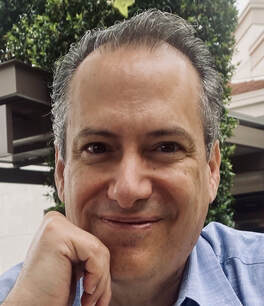Healthy giving encourages more giving while generating benefits to self, peers and community
Professor Gustavo Carlo shares tips on how parents can help foster positive giving in their children
By Carol Jean Tomoguchi-Perez
December 11, 2023
December 11, 2023
|
Professor Gustavo Carlo is a developmental psychologist who has performed extensive research in the areas of prosocial and moral development, cultural mechanisms and parenting. His primary research interest focuses on understanding positive social development and health in culturally-diverse children and adolescents. This holiday season, Carlo shares how parents can foster a “season of giving” and altruism in children well beyond this time of year.
“Our work shows that giving is strongly related to our cultural and moral values and beliefs,” Carlo said. “Thus, generosity and kindness are probably strongly associated with the holidays particularly because of the value messages conveyed about sharing, caring and thinking about the plight of others less privileged.” However, if giving is primarily tied to external motives – such as to gain the approval of parents, teachers or other community members, or as a means to obtain rewards for oneself – Carlo’s work illustrates that children are less likely to spontaneously help others unless they can expect a reward in return. This is likely to have long-term negative impacts on helping others for altruistic or selfless motives. |
“Ideally, we want our children to learn to spontaneously help others and to try and do so without a reliance on self gain or whether others would approve or disapprove of their helping,” Carlo said. “We want children to adopt strong moral values and to feel sympathy and compassion for others.”
“Healthy giving is when it is spontaneous and primarily to benefit others rather than one’s self or done only when asked for,” he added.
When children give, there are numerous benefits to themselves, their peers and communities, including the fostering of interpersonal and intergroup relationships. “For example, our work demonstrates that children who are giving show better physical and mental health; do better in school; develop more positive relationships with parents, teachers and peers; and they make positive contributions to our communities through civic engagement and activism,” Carlo said. “Giving is one of the foundations of addressing social inequities and injustices and for promoting social harmony.”
In addition, giving engenders more prosocial behavior, as Carlo pointed out. “Children who express prosociality early in life are more likely to do so later in life.”
Carlo suggested several ways parents can foster healthy giving, starting with being a positive role model and exhibiting giving and charitable acts in front of their children frequently. “Second, provide ample opportunities for children to practice giving, not just to family members, but to persons who come from different backgrounds,” he said.
Third, acknowledge and reinforce giving behaviors in children. “When they engage in prosocial behaviors, provide them with positive affection, warmth and praise so they develop a moral identity as someone who is good,” Carlo continued.
“Fourth, allow children to express sadness and sympathy for others and talk to them about the importance of having good moral values. And fifth, surround them with positive role models in terms of friends, family and positive media exposure.”
“Healthy giving is when it is spontaneous and primarily to benefit others rather than one’s self or done only when asked for,” he added.
When children give, there are numerous benefits to themselves, their peers and communities, including the fostering of interpersonal and intergroup relationships. “For example, our work demonstrates that children who are giving show better physical and mental health; do better in school; develop more positive relationships with parents, teachers and peers; and they make positive contributions to our communities through civic engagement and activism,” Carlo said. “Giving is one of the foundations of addressing social inequities and injustices and for promoting social harmony.”
In addition, giving engenders more prosocial behavior, as Carlo pointed out. “Children who express prosociality early in life are more likely to do so later in life.”
Carlo suggested several ways parents can foster healthy giving, starting with being a positive role model and exhibiting giving and charitable acts in front of their children frequently. “Second, provide ample opportunities for children to practice giving, not just to family members, but to persons who come from different backgrounds,” he said.
Third, acknowledge and reinforce giving behaviors in children. “When they engage in prosocial behaviors, provide them with positive affection, warmth and praise so they develop a moral identity as someone who is good,” Carlo continued.
“Fourth, allow children to express sadness and sympathy for others and talk to them about the importance of having good moral values. And fifth, surround them with positive role models in terms of friends, family and positive media exposure.”


